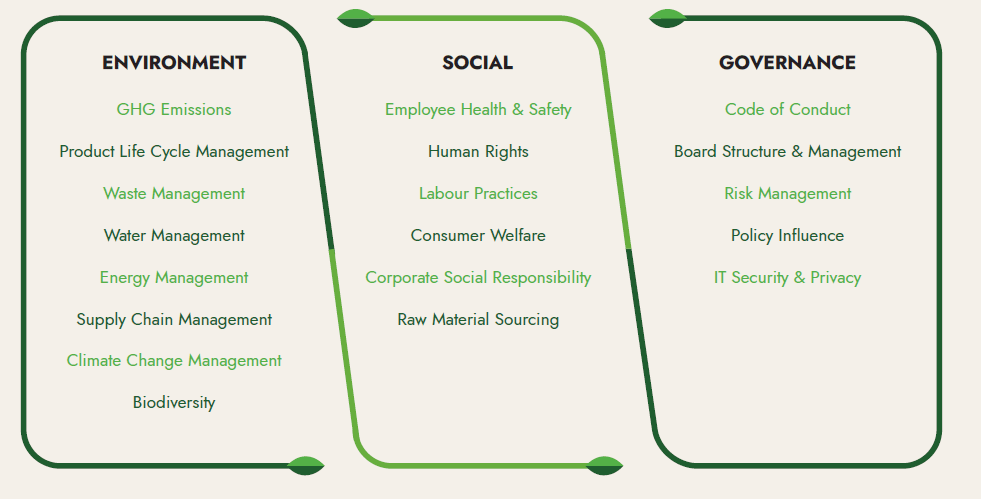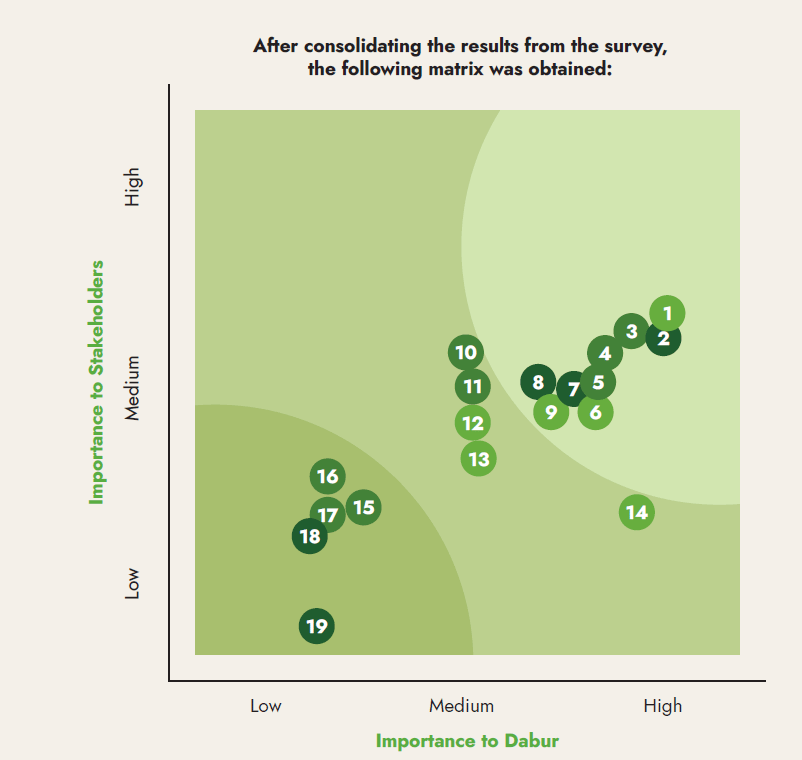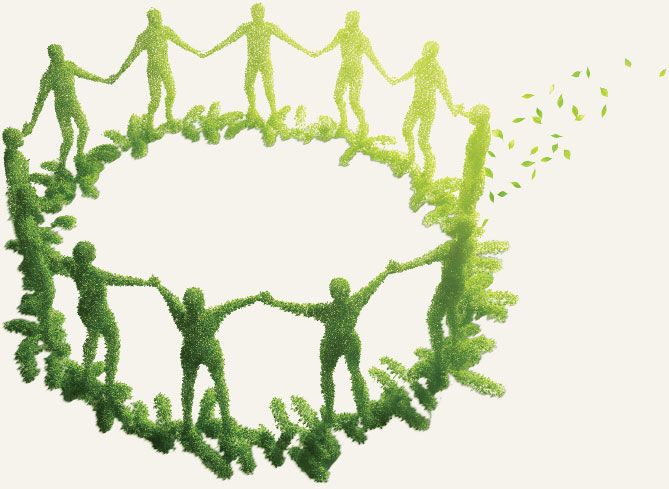Materiality Assessment
Materiality Assessment helps us identify significant issues that substantively impact our capacity to generate value over the short, medium, or long term. A thorough grasp of material aspects fosters improved synchronisation between business strategy, performance management, and reporting.
At Dabur, we conduct a formal Materiality Assessment to identify and prioritise issues that have the greatest impact on our business, communities and the environment, and those that matter most to our stakeholders. Our most recent Materiality Assessment was carried out in FY 2021-22, which included research and interviews with key internal and external stakeholders.
High Priority Materiality Issues
The assessment helped us identify 19 material topics, which were further clubbed into 15 thematic material areas under the broad headers of E, S & G.
Our 19 thematic issues are:
- Employee health and safety
- Code of conduct
- Product lifecycle management
- GHG Emissions
- Waste management
- Consumer Welfare
- Board structure and management
- Risk Management
- Corporate Social Responsibility
- Water Management
- Energy Management
- Human Rights
- Labour Practices
- Raw Material Sourcing
- Supply Chain Management
- Climate Change Strategy
- Biodiversity
- IT Security and Privacy
- Policy Influence
The 15 thematic areas basis of these material issues are:

Our Materiality Matrix
We used the insights of the materiality assessment to develop our ESG strategy, which is relevant to the entire Dabur enterprise, including the upstream and downstream value chains. We have tailored our activities based on the results of this assessment, aiming to address the issues identified as being most material to our business and stakeholders.

These issues should not be viewed in isolation as they are increasingly interconnected and can often impact each other.

